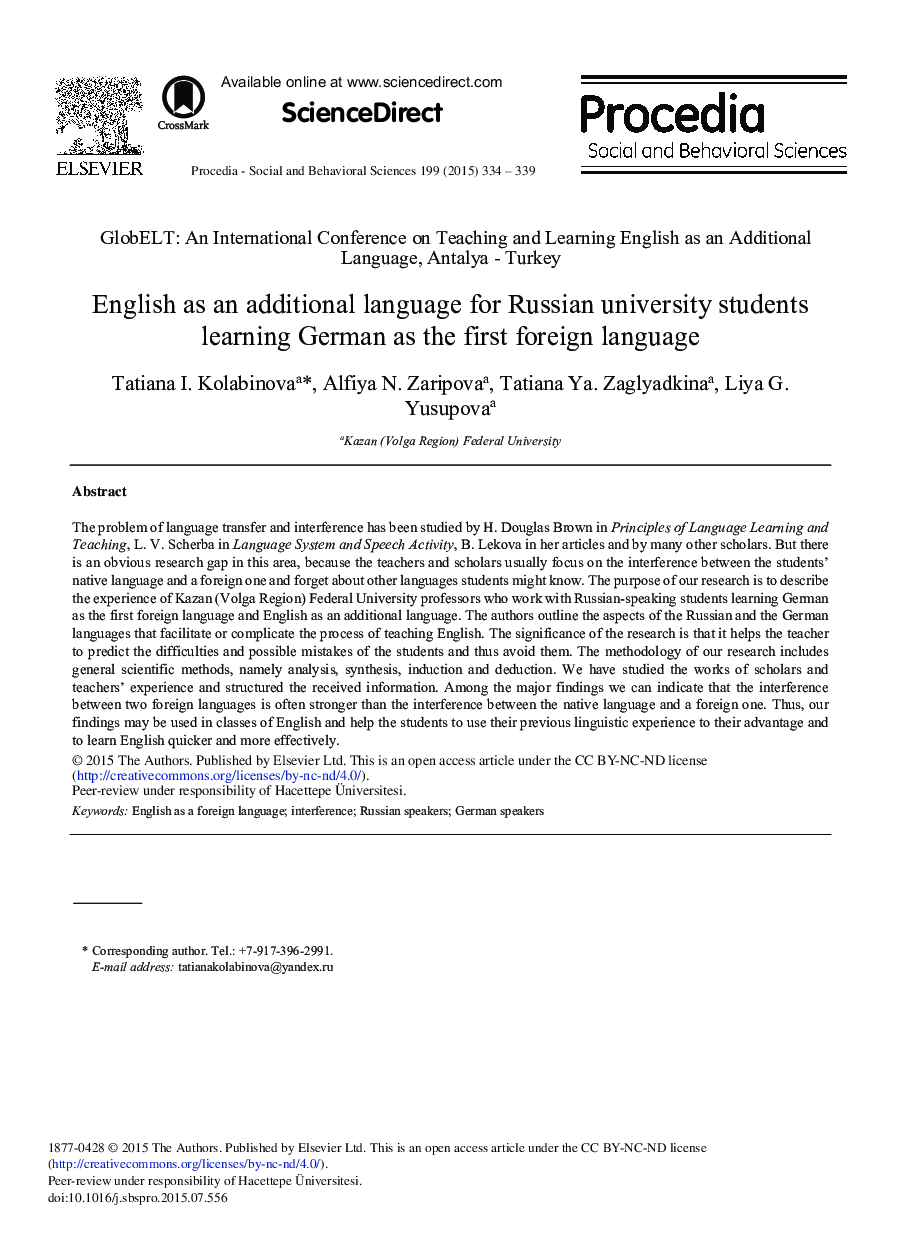| Article ID | Journal | Published Year | Pages | File Type |
|---|---|---|---|---|
| 1109794 | Procedia - Social and Behavioral Sciences | 2015 | 6 Pages |
The problem of language transfer and interference has been studied by H. Douglas Brown in Principles of Language Learning and Teaching, L. V. Scherba in Language System and Speech Activity, B. Lekova in her articles and by many other scholars. But there is an obvious research gap in this area, because the teachers and scholars usually focus on the interference between the students’ native language and a foreign one and forget about other languages students might know. The purpose of our research is to describe the experience of Kazan (Volga Region) Federal University professors who work with Russian-speaking students learning German as the first foreign language and English as an additional language. The authors outline the aspects of the Russian and the German languages that facilitate or complicate the process of teaching English. The significance of the research is that it helps the teacher to predict the difficulties and possible mistakes of the students and thus avoid them. The methodology of our research includes general scientific methods, namely analysis, synthesis, induction and deduction. We have studied the works of scholars and teachers’ experience and structured the received information. Among the major findings we can indicate that the interference between two foreign languages is often stronger than the interference between the native language and a foreign one. Thus, our findings may be used in classes of English and help the students to use their previous linguistic experience to their advantage and to learn English quicker and more effectively.
